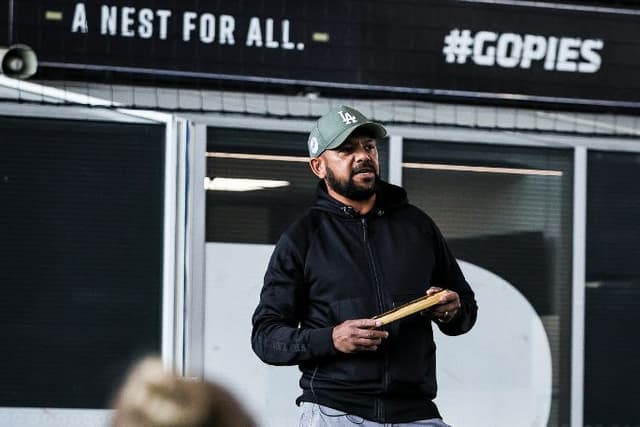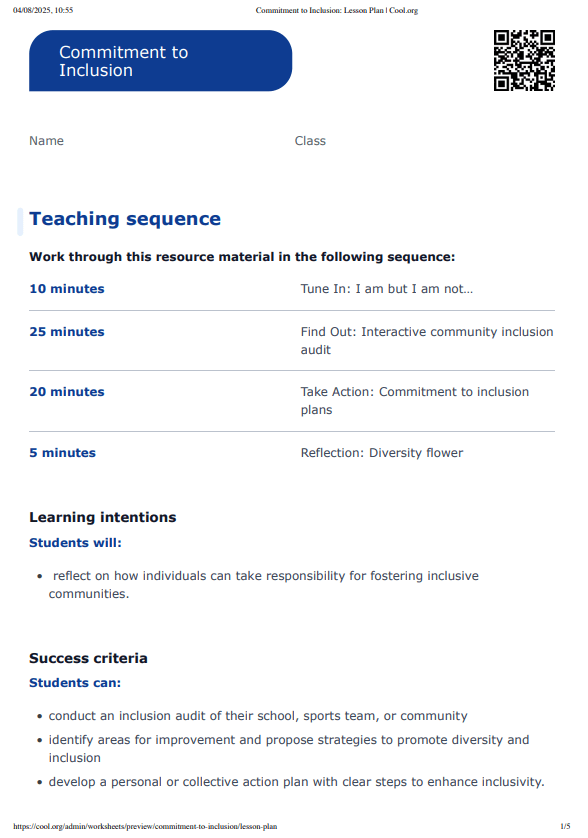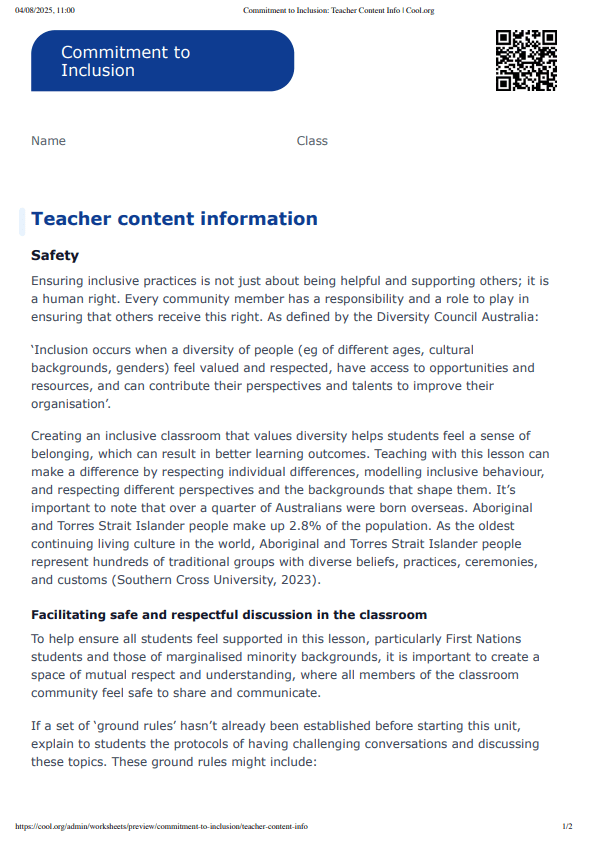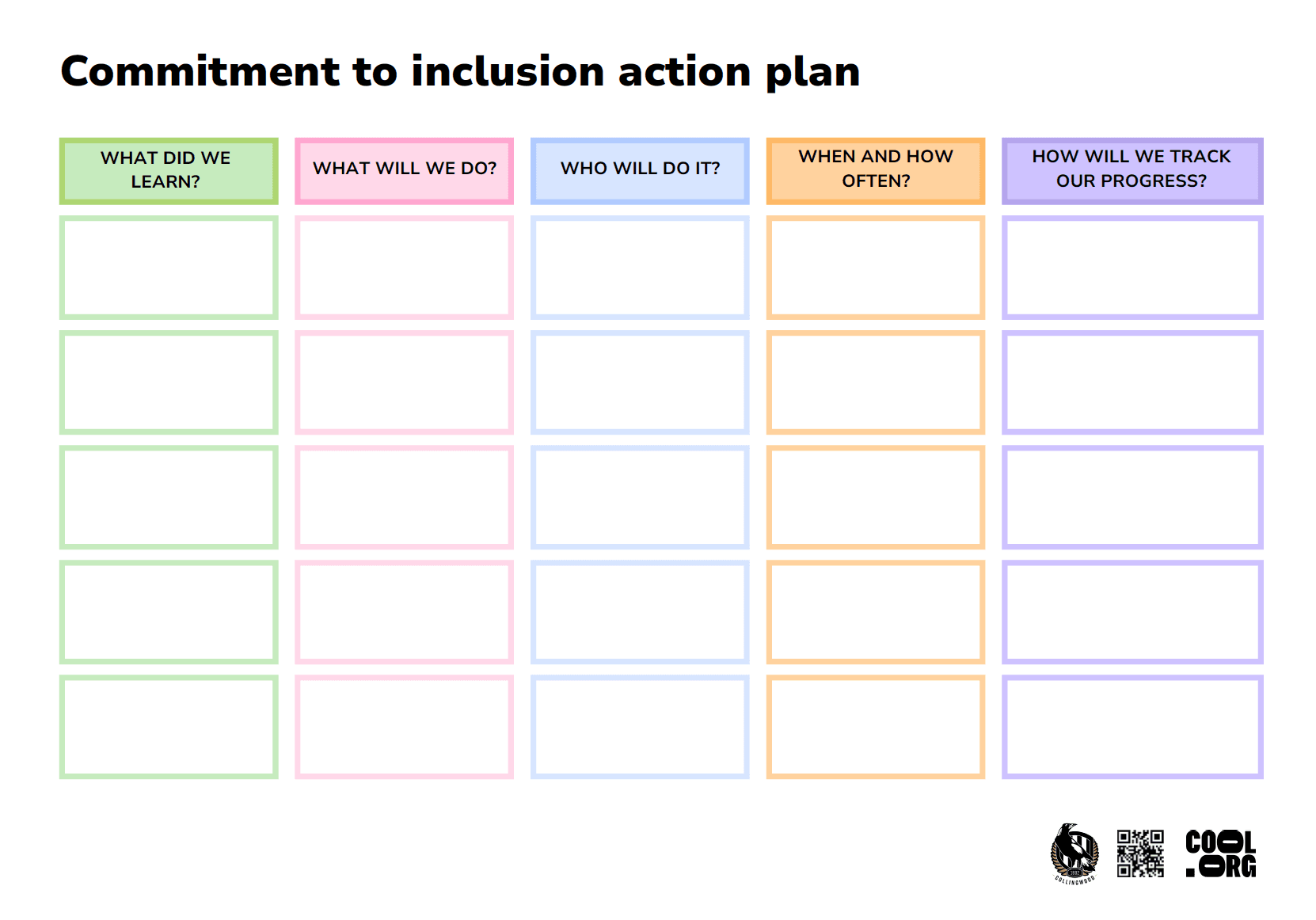Learning intentions
Students will:
- reflect on how individuals can take responsibility for fostering inclusive communities.
Success criteria
Students can:
- conduct an inclusion audit of their school, sports team, or community
- identify areas for improvement and propose strategies to promote diversity and inclusion
- develop a personal or collective action plan with clear steps to enhance inclusivity.



